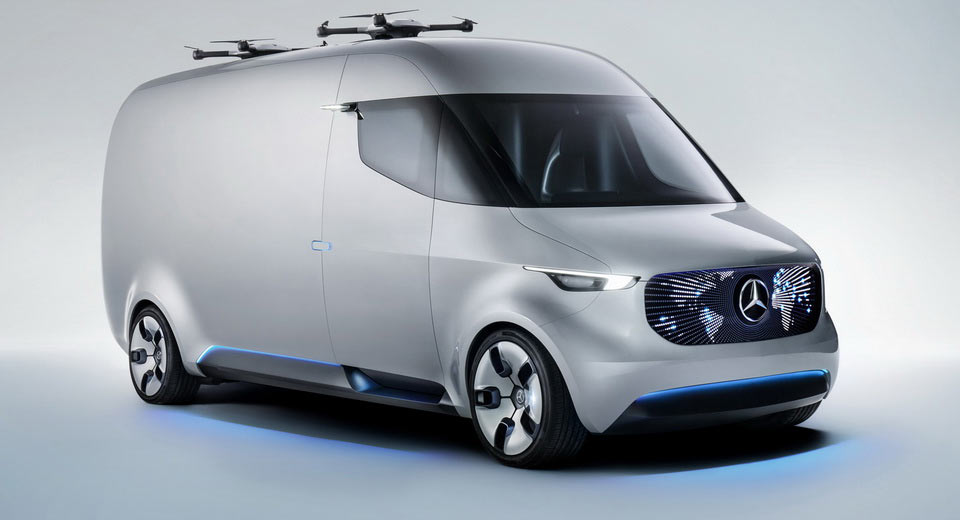Mercedes-Benz unveiled the Vision Van study which is said to portray the all-electric future of vans.
The new Vision Van is part of the company’s initiative called ‘adVANce’ and includes not only the commercial vehicles used in the industry but also a complete reboot of the transport industry.
Mercedes says that the Vision Van combines “various innovative solutions for last-mile delivery in urban and suburban environments” apart from its all-electric powertrain. “The new Vision Van concept is the first van to fully digitally connect all people and processes involved, from the distribution center to the consignee”, said the company in their release.
More specifically, the Vision Van features a fully automated cargo space combined with integrated delivery drones. This will allow for example, a parcel service provider to park the van in a residential area and deliver multiple packages to nearby customers autonomously by air, even if they are not at home.
Mercedes’ latest concept is powered by a 100hp (75 kW) electric powertrain and -depending on the specification- can offer a driving range from 50 miles (80km) to approximately 167 miles (270km).
“With the Vision Van from Mercedes-Benz Vans we provide an idea of future generations of vans: the intelligent automation technology connects the entire process, from loading and transportation by road through to delivery to the consignee”, said Volker Mornhinweg, head of Mercedes-Benz Vans. “This makes it easier for the deliverer to do business and rapidly reduces the delivery time for end customers.”
The ‘adVANce’ initiative focuses on three fields of innovation: incorporation of the van into the Internet of Things, which resulted in adding smart technologies into the vehicle such as a new telematics unit that collects and processes data concerning the status of the delivery tour, the present location and the load, and a new fully automated inventory management system that -among other things- will load the ordered items directly the van overnight autonomously.
The second field is the use of innovative hardware-based solutions for the transportation industry which includes a fully automated cargo space system to make the deliverer’s work more efficient when making deliveries. Finally the third one is to present new mobility concepts for the transportation of goods and people which are going to make the ride-sharing services way easier and at the same time more efficient.























